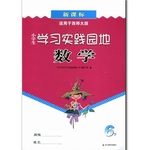题目内容
The British National Health Service (NHS) was set up in 1948 and was designed to provide equal basic health care, free of charge, for everybody in the country. Before this time health care had to be paid for by individuals.
Nowadays central government is directly responsible for the NHS although it is administered by local health authorities. About 83 percent of the cost of the health service is paid for by general taxation and the rest is met from the National Insurance contributions paid by those in work. There are charges for prescription and dental care but many people, such as children, pregnant women, pensioners, and those on Income Support, are exempt from payment.
Most people are registered with a local doctor (a GP, or General Practitioner) who is increasingly likely to be part of a health centre which serves the community.
As the population of Britain gets older, the hospital service now treats more patients than before, although patients spend less time in hospital. NHS hospitals — many of which were built in the nineteenth century — provide nearly half a million beds and have over 480, 000 medical staff. The NHS is the biggest employer in Europe although Britain actually spends less per person on health care than most of her European neighbours.
During the 1980s there was considerable restructuring of the Health Service with an increased emphasis on managerial efficiency and the privatization of some services (for example, cleaning). At the end of the 1980s the government introduced proposals for further reform of the NHS, including allowing some hospitals to be self-governing, and encouraging GPs to compete for patients. Patients would be able to choose and change their family doctor more easily and GPs would have more financial responsibility. The political questions continue of how much money should be provided to support the NHS and where it should come from.
We can know from the first paragraph that ______________.
A. the original aim of the NHS was to provide equal basic health care for everybody
B. people didn’t have to pay for health care since the NHS was set up
C. patients were charged for receiving health care before 1948
D. the NHS was an organization which gave free advice to villagers
What do we know about the NHS?
A. It’s managed by the central government.
B. Its cost is mainly paid for by the National Insurance contributions.
C. It hires more people than any other unit in Europe.
D. Fewer patients go to its hospitals than before because they spend less on health care.
All the following statements about GPs are true except that they ____________.
A. take care of the local people’s health
B. often take part in competitions to see who is the best
C. work under high pressure nowadays D. have more responsibilities than before
What does the underlined word “exempt” probably mean?
A. suffering B. different C. prevented D. free
The biggest problem for the NHS is ______________.
A. many hospitals are too old to be used
B. some services are in the charge of individuals
C. more and more patients go to GPs for treatment
D. there is not enough money for further reform
【小题1】C
【小题2】C
【小题3】B
【小题4】D
【小题5】D
解析:
略

 仁爱英语同步练习册系列答案
仁爱英语同步练习册系列答案 学习实践园地系列答案
学习实践园地系列答案It seems that the Englishman just cannot live without sports of some kind. A famous French humourist once said that this is because the English insist on behaving like children all their lives. Wherever you go in this country you will see both children and grown-ups knocking a ball about with a stick or something, as if in Britain men shall always remain boys and women girls! Still, it can never be bad to get exercise, can it?
Taking all amateur(业余)and professional sports in Britain into consideration, there can be no doubt that football is at the top of the list. It is called soccer in the United States. The game originated in Britain and was played in the Middle Ages or even earlier, though as an organized game, or “association football”, it dates only from the beginning of the 19th century.
The next is rugby, which is called “football” in the United States. It is a kind of football played by two teams of fifteen players rather than eleven. The rugby, in which an oval-shaped ball is used can be handled as well as kicked. It is a pretty rough game.
In summer, cricket is the most popular sport. In fact, it has sometimes been called the English national game. Most foreigners find the game rather slow or even boring, but it enjoys great popularity among the British.
Tennis rates high on the list, too. It was introduced into England from France in the 15th century, but it was from England that it spread to practically every country in the world.
Table-tennis or “ping-pong” surely is not played on a great scale as it is in China or in Japan. Basketball and volleyball were introduced into Britain during the late 19th century from America and are gaining popularity. Horse-back riding, swimming, rowing and golf all attract a lot of people.
1.The main purpose of paragraph one is to tell us that the English_______.
|
A.are all sports lovers |
B.behave like children |
|
C.like to kick a ball around |
D.can remain young all their lives |
2.According to the passage, which of the following is NOT true about football and rugby?
|
A.They differ in the shape of the ball |
|
B.They are played by different numbers of players |
|
C.They both can be handled |
|
D.They both can be kicked |
3.From the second and the third paragraph, we know that_____.
|
A.Americans love football most of all |
|
B.British people love rugby most of all |
|
C.Americans and British people may call the same thing differently |
|
D.football originated in Britain in the 18th century |